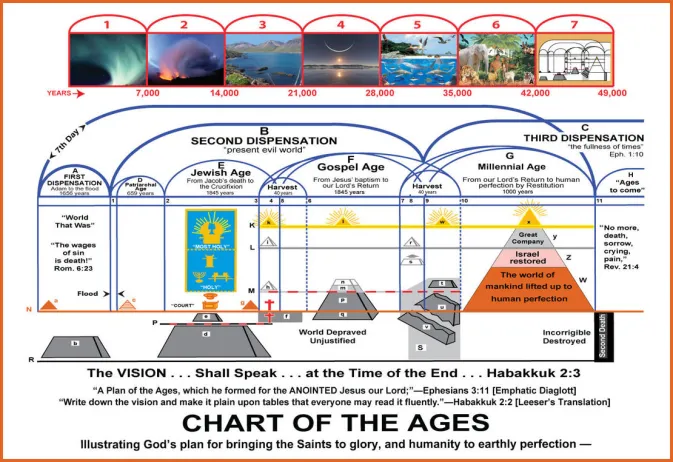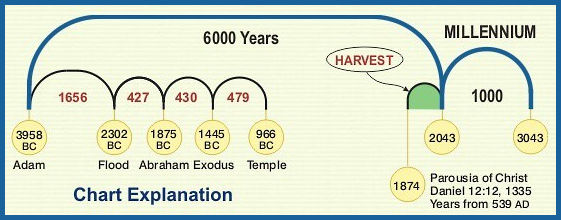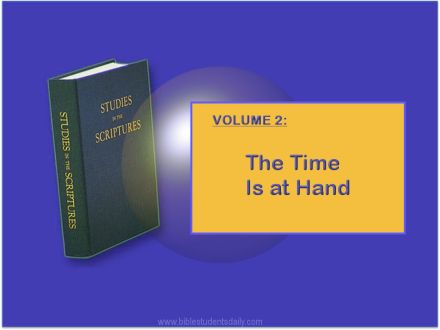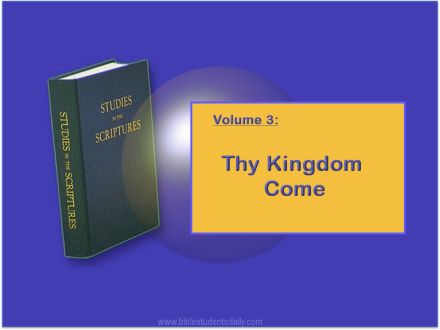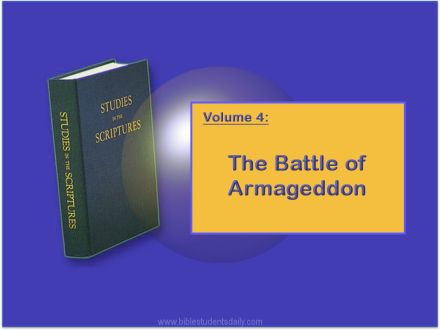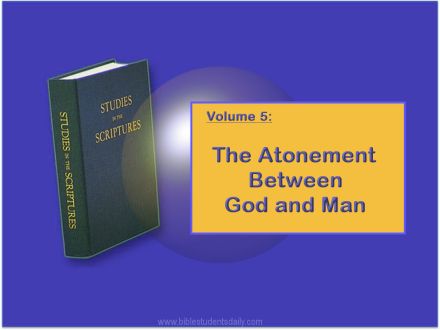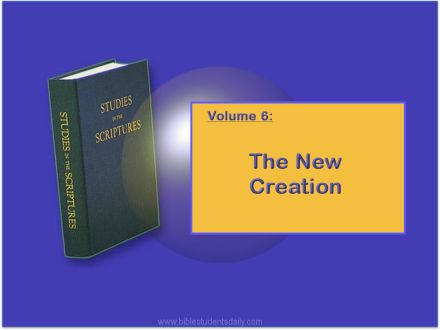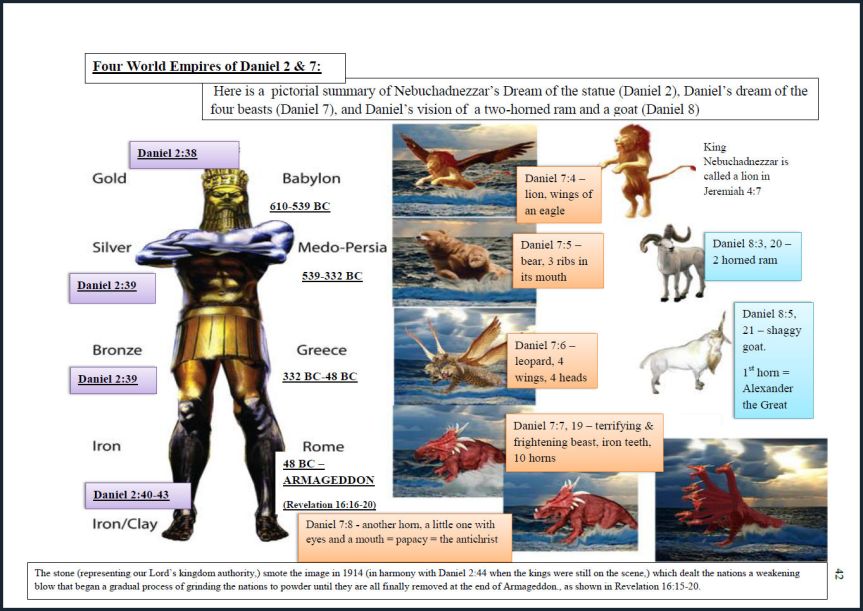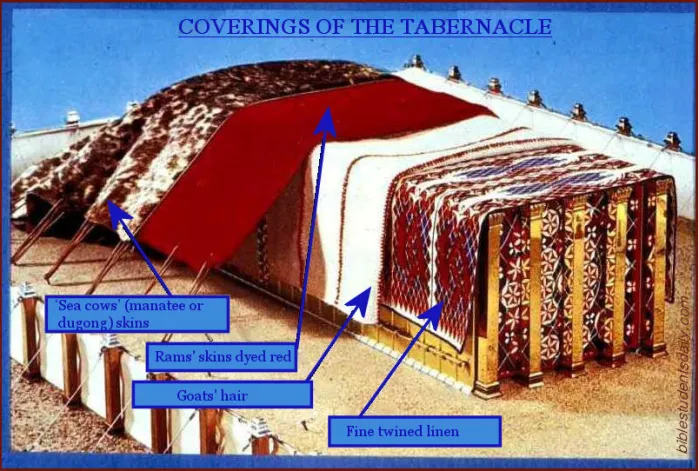
Dear friends,
“Not forsaking the assembling of ourselves together as the manner of some is, but exhorting one another, and so much more as ye see the day approaching. For if ye sin willfully after ye have received a knowledge of the truth, there remaineth no more sacrifice for sin” (Hebrews 10:25-26).
It seems to me that there is a most astounding connection between those two verses, as though the Apostle were explaining that a time would come when communion and fellowship with the people of GOD would be more essential than it had been before, and if we would ignore and neglect that PRIVILEGE there would be great danger that the final results might be the loss of everything.
You will notice, too, the Apostle uses the word “forsake” here. He did not say, “Do not ignore the assembling of yourselves together.” If you and I have never met with the people of GOD, and knew nothing of the blessing and benefits of that fellowship, the Lord would never have made the statement quite so strong; and you and I would not be quite so well able to discern the necessity or value of meeting with the people of GOD. And, the thought is, if you have once tasted of this blessing, if you have once enjoyed this fellowship, if you have once participated in this communion, now do not forsake it; NEVER GIVE IT UP; forsake not the assembling of yourselves together as the manner of some is.
Why is this made such an important matter to not forsake the assembling together ?
Why does the Apostle lay such stress on it?
Why should you and I be so careful about meeting with the children of God?
Here are some reasons:
1.
You and I should do this thing on the basis of FAITH, because the Lord says so, even if we could not see one single benefit to be derived, even if we could not see one single advantage to be gained; the very fact the Lord said so ought to settle the whole matter, and we should say, “Lord, I respect your Word; you have said it, and I am going to abide by that.”
I think there is not the confident faith in many of the statements of the Word of GOD, even among some of his children, that there ought to be.
Do you remember the faith that Abraham had? Do you remember the time when GOD came to Abraham and said to him, “Abraham, leave thine own house, and thy father’s house and come out into this land that I will show you?” Do you remember how Abraham never stopped to question the wisdom of GOD’s advice? He did not say, “Well, LORD, your desire is clear to me, but I cannot see why you want me to go out there? Don’t you think, LORD, this is a pretty good place where I am living? Why cannot I stay here and serve you? How is that land that you want me to go out into? Is it a pretty good land for farming purposes? Do you think I would be able to raise a crop to support myself and my family? Abraham did not say one word. GOD told Abraham to go, and he was ready to go. Even when he got there he found nothing but a barren wilderness. Dear friends, that was faith, and that is the faith that you and I want to have.
When we find the advice in the Word of GOD that we should not forsake the assembling of ourselves together, then when we find the people that have GOD’s spirit, when we find the people who give evidence of living close to the LORD, then, whether you find the measure of profit in associating with them you expect or not, you should meet with them, because GOD has said so.
Some might say, “Well, but do not situations alter the matter?” I am sure if there is no one in your neighborhood who does give evidence of having love for GOD and his Truth, then of course matters would be altered, but even in that case you would have to hold fellowship in your mind and heart with the people of GOD, even though visible fellowship was impossible. But if you are located where there is a company of GOD’s children, then your course is clear from that statement.
I am afraid that there are some of the Lord’s people who say, “Well, I know the Scriptures say we should not forsake the assembling of ourselves together, but I have some trials and some obstacles in the way, now don’t you think I am justified in not attending ecclesia meetings?
“Sister, the LORD said forsake not the assembling of yourselves together.”
“But now wait, I want to show you from this standpoint: I live quite a ways from the meeting, and I have not the very best of health. Now don’t you think I would be justified in staying home and not assembling with the LORD’s people?”
“The LORD has said, Sister, forsake not the assembling of yourselves together. It does not matter how you view it, the matter is settled. ”
Let us not be of that class that are seeking some excuse that they may not have to act on what GOD has advised, but let us be of the class that are determined to overcome every obstacle in order to adhere to the advice and abide by the suggestions GOD has made. I think it is a dangerous thing when we get into the position where we want some excuse for ignoring the Word of GOD. I believe that Satan realizes our weaknesses along that line and he knows how to take advantage of them. It seems as if the devil has a big excuse department, and if anybody wants any excuse for anything-anything that would be contrary to the Word of GOD, he will get the excuse up for them. All you have to do is to have a half a wish in your heart that you do not have to go to the bible study meeting tomorrow, and he will send you a box of excuses right away. If he finds in your heart or in my heart the least inclination to ignore the admonition of the LORD, he will find some way of taking advantage of that inclination, and you and I are going to be trapped.
2.
Where GOD’s people are gathered, there GOD is, and where the church is, there the head (Jesus) of the church is. The Savior himself says, “Where two or three are met together in my name there will I be” (Matthew 18:20).
It would be absurd for any of GOD’s children to gather together without the Lord being present if they really are his children. How absurd to think of someone coming to these meetings and leaving their head at home? Indeed if they come they have to bring their head with them. If you are one of the children of GOD, and if Jesus is your head, if you have given up your own head, your own will, to do the will of your Master, then wherever you go your Master goes; and you will say, “Where there is a company under the control of the Spirit of the Master there I want to be; I want to be where he is, and I know he is there in a special and peculiar sense over and above what he is with me when I am alone in connection with my daily employment.”
3.
When we meet with the LORD’s people, we realize that these are the people who love to talk about the things that we love to talk about; they love to dwell on the topics that are dearest to our hearts. If we are amongst the people of the world, and if all our interests and all our desires are along worldly lines, then we would rather go where our neighbors go-we would rather go to places of amusement, we would rather go to places that would to some degree benefit us along worldly lines; and if your heart has been given to the LORD you want to go to the place where these things are talked about that you are most deeply interested in, the things of the LORD, where his will is in control.
And yet this does not mean that when the people of GOD meet together they always do confine their discussions and conversations to the subject that means the most to them. Let us be careful all along that line.
When we meet with the LORD’s people let us keep our minds focused on the things of the Lord; let us keep our hearts centered upon spiritual matters. And you might misuse the LORD’s time in talking about the things that do not profit you as respects the edification of the new creature.
I think it is very much like the Jewish Tabernacle. You know how when you went into the Holy if you would look up there on that curtain overhead you could see all of those figures of cherubim wrought in needle work. To me that illustrates the way you and I, when we are in that condition, begotten of GOD’s holy Spirit, as we look up we see GOD’s providences, we see his wisdom, his love, his power and his justice, and by the eye of faith we behold the very angels as ministering spirits sent forth to minister to the people of GOD.
Do you remember when the high priest, or the under priests either, were in the Holy, if they looked up they could see these angels, these cherubim, everywhere on that curtain wrought with needle work? But suppose instead of looking up, the priest just looked down, and kept his eyes on the earth, what would he see? Nothing but dirt, just ground. You remember there was no special floor made in that Tabernacle, it just stood on the earth. This gives us the thought that even though you and I have been begotten of GOD’s Holy Spirit, even though we have been brought to the place where we are new creatures in Christ Jesus, yet we have to keep our eyes up, as it were-lift up our heads. On the contrary, if we are looking down in the worldly direction we will see earthly things; we will just see dirt, nothing but dirt.
4.
When we meet together with the LORD’s people, we talk about the things that will help them toward the kingdom, help them to make their calling and election sure, things that will give them an abundant entrance into the everlasting kingdom of GOD.
In the 3rd chapter of the Book of Philippians, we read “Forgetting the things that are behind.” We want to learn to set our affections on the things above and forget those things that are behind. We want to seek the things that will edify, and especially let us beware of boastfulness along these lines. I find so often we are inclined to cultivate a little boastful spirit, we like to talk about the different people we have engaged in conversation, and how we have downed them in our argument, and how they could not answer us, how we were able to cover them with confusion, etc. Dear friends, I think it would be well for us if we would not talk quite so much along those lines. We do not want to have that boastful spirit that will go around boasting of the victories gained, or anything of that kind. We do not want to merely pull the faith of others down. Rather we want to build their faith up in the right direction. So I would suggest that we talk more along the line that would draw us towards the Lord, and less along the lines that would draw us away from the Lord.
5.
In meeting with the people of God we will find grace and strength to prepare us for the hard experiences that are coming.
In 2 Corinthians 12:9, the LORD, through the Apostle Paul, uttered these words:
“My GRACE is sufficient for you.”
By these words, our LORD did not mean that we would always have grace sufficient for every trial. It may be possible some of the LORD’s people have found themselves in trials sometimes, and they have had to confess that they did not have grace enough. They said, “Oh, I know if I had sufficiency of grace I could bear this trial better than I do. There is something wrong; the LORD said his grace would be sufficient, but it is not.” Has the LORD broken the promise? Not at all. Here is the thought:
The LORD promised he will supply sufficient grace, but you and I, in order to make use of that supply, we will have to go to the source of supply in the right way, as it were. Perhaps in going to a particular Bible Student Convention or an ecclesia meeting, GOD has arranged that you will obtain grace to prepare you for trials you are going to have, in the nearest future.
Now suppose you say to yourself, “Well, I know the LORD has told me I should not forsake the assembling of myself with you people, but it is a long distance to the meeting place, and I do not like the brethren altogether there. I think some of them have very peculiar and eccentric ways about them, and I just think I will stay at home instead”…
What about going to BE A BLESSING? Or going for the sake of even that ONE who may benefit? Ill health or lack of money may be the case but if one prays in faith about it, then GOD does indicate His will and often what seems impossible GOD makes possible if the desire is to DO HIS WILL (Luke 18:27).
What is the result of not going to that convention or that ecclesia meeting?
You are not obtaining the grace that you needed for the trial when it comes and the consequence is when the trial arises, you will be lacking, but not because GOD failed in the keeping of his word; GOD has done his part, he is supplying the grace, but you just as much as told him, “LORD, I know there is grace at that meeting, but I do not want it that way; you have just got to inject the grace into me; that is the way I want it.”
Dear friends, we cannot afford to miss one single opportunity for service, or one single opportunity that is reasonable and proper for us to make use of in connection with associating with those who love the Lord, without it being to our detriment spiritually, so that some trial will come and we will be unprepared for that trial.
So I say, we want to be ready for those trials coming; we want to have that preparation of heart and mind that will enable us to pass through trials victoriously, and that is the reason why we do not wish to forsake the assembling of ourselves together.
6.
We also want to meet with the people of GOD because we recognize these are the people we are going to spend eternity with; we want to get acquainted beforehand. If you are one of the faithful followers of the Lord Jesus Christ, and if I am one of those who may prove true to him, then we will be among those who will have to be associated through all the boundless ages of the future. I feel, therefore, that if I am at all unwilling to associate with you today, if I feel that I would rather live without physically meeting with the people of GOD, that I would rather spend my time dealing with business associations or ways of worldly pleasure, the consequence of that would be that I would be unfit to spend those ages of eternity in your company, and in the company of others that are making their calling and election sure.
7.
In assembling with the people of GOD, they help us, and we are able to help them. Do they help us? They certainly do if our heart is in the right attitude.
In going to a convention or ecclesia meeting, is your attitude such that you think you will get no benefit from going because you feel there will not be anything said which you did not know and you think you are pretty well informed and well up on the Scripture?
If that was the spirit in which you go to meeting or to a convention, then to the extent you entertained that inclination, that spirit, to that extent you have lost a blessing; but if on the other hand you go in a teachable attitude, with a desire to learn-not merely to learn something new, but to learn something that will draw you closer to the Lord, then I know you will go away spiritually enriched, you will go away feeling as though you were nearer to our Lord than you ever have been before.
If we are in the attitude where we simply want to hear only something new, where we come to the conventions not to hear about brotherly love, and not to hear about patience, and not to have our spirit of zeal encouraged, and not to be impressed with the glories of the kingdom so much, but we come to hear only something new, something that has never been said before, something that will just make our blood tingle to hear, because of its novelty, then we realize that we will also go away to some extent disappointed, because that is not the LORD’s purpose. It is not GOD’s intention that His people should be built up and strengthened by the amount of new things that should be said, but on the other hand it is the frequent reiteration of the old things that is likely to strengthen us and to enable us to make our calling and election sure.
So now when you go to your little home bible study meetings and you find that the brother who took the leading part in that meeting never has anything very original to say, and you find that the other friends in the class seem to have very little novelty in their statements, then, dear friends, the fault is not with the class, the fault is with you; you are not in the proper attitude. Just think, if we are one of those faithful ones who will be united with our Lord in the ages to come, what is going to be your work and my work? Will we have all of that thousand years for something new to say to the world every day? I think not. It seems to me that when the world comes up from the tomb in the near future, if we are one of that honored company associated with our Lord Jesus, we will have to repeat the plan just so many times that if you do not love it very dearly you will get tired of it then; and that is why the Lord is not going to have one in that class who does not love the “old, old story” so dearly that he can sing it from the heart; and “those who know it best seem hungering and thirsting to hear it like the rest.”
I have come across brethren and sisters who sometimes go to a Berean study and they only half listen. Brother so and so says something, and they think of something else because they know that brother never says anything new… then another brother speaks up, and they pay a little attention to what he is saying, because they know already what he is going to say. And consequently when the meeting is over they think it is strange they do not get much benefit from the meeting. But the fact is, that if we had paid attention to what that brother said, instead of allowing the spirit of pride to make us feel we knew it already and did not have anything to learn from him, it would have done us good and been refreshing. Then we listened to the next brother, and he made a statement and we would probably see a connection between what he said and what that other brother said that was especially helpful; and the third brother would follow with a little statement, and there would be some helpful point in what he said that would fit in with the statement made by the other, and when the meeting was all over we would say, “Gee… that was such a profitable meeting we had today! Oh, how much benefit I received; how much help I derived from this little Berean study!” Let us remember that frequently it is pride that causes us to be inattentive when another is speaking.
What did Apostle Paul mean from the following words:
“For though ye have ten thousand instructors in Christ, yet have ye not many fathers: for in Christ Jesus I have begotten you through the gospel” (1 Corinthians 4:15).
Well, possibly at that time, there may have been about ten thousand consecrated believers, as far as the Apostle Paul would judge, and he wanted this number to realize that every consecrated child of GOD was in a position to some extent to be an instructor. I will have to say that I have gotten an indescribable measure of benefit from just observing the conduct, the speech and the deportment of those I come in contact with in my travels.
May I also suggest that we cannot only learn from others, and instruct others by the words that are spoken, but by our example, by the deeds we perform. I think a great many must fail to appreciate what examples we ought to be.
We often say, “Well, you must not take me for an example.” But, dear friends, if you claim to be a consecrated Christian you ought to be an example-you must be an example.
To be a Christian means to be an example; not an example of perfection, but an example of what the grace of GOD can do.
Do you mean to say you have been under the influence of GOD’s grace for five years or ten years or fifteen years, and yet the LORD has done nothing in your life that ought to be an example, a benefit, a blessing to those who come in contact with you?
It would be something to be very much ashamed of, if we would have to say that we have resisted the influences of GOD’s spirit to such a degree that we are not an example of what our Heavenly Father can do at all-even though the LORD has thus been dealing with us so long.
If we are living epistles, as we ought to be in our homes, we will be careful there just as truly as anywhere else. But sometimes even friends who are very careful how they act amongst others when they are in a public place, when it comes to their own home it is rather a matter of indifference to them. You cannot help but sometimes observe it.
I remember I was in one home where there was a little sister there who was in many respects a grand consecrated character. Her husband did not make very much religious profession at all, but I will never forget the impression made upon me. At the table, for instance, if I would ask for a thing that sister would go to any amount of trouble to have it at my plate right on the instant; if her husband asked for anything she did not seem to care whether she heard him or not; he would have to wait until the thing got around to him. If I asked a question, she would take ten minutes to explain and tell me all about how to get to the post office, or whatever it was; if her husband asked her a question she would cut him off in such a snappy sort of way that it made me wonder why he ever wanted to ask her anything much.
I could not help but realize that sister was not showing the spirit the Lord desired in his people, and I could not help but think if possibly I stayed at that home for six months she would not be quite so beautiful in her treatment of me as she had been in the few days I was there.
Now, dear friends, let us be careful along those lines. Let us remember that we can just put it on when we have company for a day or two, but what we really are, and what is actually in our hearts, manifests itself by the daily lives we live in our home, and amongst those with whom we are accustomed to associate day after day.
Also, we can set an example to others on very simple lines, in ordinary things, that will have an influence over them in very important matters.
E.g. Suppose in your ecclesia you find there is a lack of thoughtfulness; for instance when the song service is going on there is some brother or sister that has no song book; nobody ever seems to think of looking around to see whether others have hymn books or not; the rest of you sing and this one is allowed to sit there without an opportunity to look on a book at all. Now that would be an indication that there was a lack of consideration, and a measure of selfishness probably, amongst the friends. But if that is the case you ought to keep the thought in your mind that you are partly to blame for it, because if you set the proper example, it does not matter who you are, you might be a very unimportant personage apparently, and yet at the same time your influence in helping to overcome that condition would be valuable. So if you see a brother without a book, you would immediately hand your book to that one, and then let’s say… the next time you were at a meeting you did the same thing… well, the result would be that by and by the members of the class would notice those things, and they would begin to see the spirit of consideration in you, and you would begin to find them doing likewise; and soon, there would be such a spirit of considerate unselfishness in that class that it would do anybody’s heart good to meet with them. So then, if the little company with whom you meet is not in the condition you think it ought to be, do not blame them but begin to blame yourself, and think,
“Should not I set a different example?
Should not I have been showing a different spirit, and in doing so would it not be found a benefit to the other members of this class?”
Our influence will count most in proportion to the thorough spirit of humility we possess.
Whoever tries to be conspicuous, will injure their influence to that extent, I would say that especially with regard to the elders of the various classes. If a brother is permitted to occupy the position of an elder, it seems to me he ought to perform the duties that devolve on an elder in a spirit that is so permeated with humility that others would get a blessing from his service, and yet at the same time would hardly be aware of the fact that he was the elder of the class.
I remember one class where I went where they all seemed to be fairly humble, but there was one brother that I am afraid-well, wanted to be a little prominent, to be rather conspicuous, and I remember at first this brother went ahead and opened the meeting, and at the second meeting the same brother took charge of the meeting, and just before the third meeting began I said, “Brother, who will open the meeting this morning?”-Sunday morning it was.
He said, “I think I will, Brother Barton.”
“Well, are there any other elders in the class, brother?”
“Oh, yes, we have four elders.”
“Well,” I said, “suppose brother, you take your turns; I think it looks much nicer if all the elders take their turns in matters of this kind. Suppose you have one of the other brethren open the meeting this morning.”
“Well, Brother Barton, I know they will not want to do it; they put it off on me, and tell me I ought to do it; I know they will refuse.”
“Well,” I said, “you go and ask them anyhow.”
He went to one of the brothers and asked him if he would open the meeting. The brother apparently refused, and this brother came back to me and said, “He tells me he would rather I would open the meeting, he does not want to do it.”
I said, “Wait, I will go and speak to him.”
I said, “Brother, you are one of the elders of this class?”
“Yes.”
“Well now, could not you open the meeting this morning?”
“Well, but I think Brother So and So could probably do it much better.”
“Well, but brother, I think if the class elected you as one of the elders it would be proper for you to take your turn.”
“Well, if you think so, it will be all right.”
That brother opened the meeting, and I got another brother to open another meeting, and a third brother the next meeting, and I think if I am not mistaken possibly all the elders of the class had a turn in opening those meetings before the conclusion of our visit.
Now the thought is this: These brethren apparently had the spirit of humility, but there was one brother that was too willing that he should be prominent. He ought to have impressed on the minds of the others the fact that they had a work to do, too; they had an opportunity, according to the Lord’s voice as expressed through the class; and I would suggest that brethren who are elders of the classes be especially careful that they do not assume too much of the responsibilities and ignore the other elders in the class. And where there is only one elder, how careful that brother ought to be!
Another thing: the elder that exerts the greatest influence over the class is the elder who performs the duties developing upon him in such a way the others would hardly know he was an elder. He does not feel boastful about the matter, he does not have much inclination to put himself forward.
So, by not forsake the assembling of ourselves together, we get HUGE opportunities to assist in the building up of the Body of Christ.
8.
We find especially helpful opportunities for spiritual development which we do not find out in the world amongst those who do not profess Jesus Christ as the son of GOD Yahweh, Jehovah. Hence, when we come to the people of GOD, we do expect something better, and the consequence is, when we find that GOD’s people are imperfect, when we find that they sometimes do things we would rather they should not do or sometimes say things we would rather they should not say, it helps to develop in us a larger measure of spirituality, a larger measure of the graces of the Holy Spirit than would possibly have been developed in us if it had been a worldly person that had treated us that way.
I think we are all inclined to expect too much of the people of God. We realize we are in the flesh, and we know that as long as we are in the flesh we are imperfect, we all have our failings; but we are thankful that the failings and imperfections and blemishes are not of the new nature, but the old nature-not in the hearts but rather in the flesh. And I think if we would keep that in mind we would be ready to make greater allowances for those who we come in contact with; we would have great allowances for our dear brethren and sisters when they do something that is not altogether to our liking.
In the Book of Romans 15:24, the Apostle Paul writes:
“Whensoever I take my journey into Spain, I will come to you: for I trust to see you in my journey, and to be brought on my way thitherward by you, if first I be somewhat filled with your company.”
Here the Apostle Paul told us about the journey he hoped to make to Spain, and he said he expected he would go by way of Rome, and he would stop and visit the Roman brethren for awhile, and he said he hoped that when he met those brethren in Rome he would be somewhat filled with them. Another translation reads: he hoped he would be ‘partly satisfied’ with them. What? Why only ‘partly satisfied’ with the brethren at Rome? Did he not expect to be entirely satisfied? No. You see, if he was not entirely satisfied with himself, how could he be entirely satisfied with them?
I know I have been acquainted with myself a great deal longer than I have been acquainted with you, and I know I have had opportunities to understand my motives better than I could possibly understand your motives, because I can not read your hearts, and I know furthermore I have had plenty of time to get accustomed to my own peculiarities and idiosyncrasies, and so on, while I have not had much opportunity to get acquainted with yours. It must be so then, that if after all of these years I am not satisfied with myself, how can I possibly be satisfied with you? I know that in you there are things I do not like; if I do not know what they are it is simply because I have not been with you long enough. If you and I could live under the same roof for about six months probably I would know something about your weaknesses, and probably you would know something about mine; and therefore the thing for us to do is to not cultivate the spirit that would readily find fault because a brother is weak, but rather the spirit which seeks to be strengthened and benefited and helped by the weaknesses of the brethren.
How can these weaknesses help us?
By developing in us more of the spirit of patience, of compassion, etc.—the spirit that would make allowances for that brother.
Here is one illustration of this:
A certain brother in Christ who was on his way to one of the conventions; he got on the train; there was quite a company going to the convention, and he went through one of the coaches talking to a number of friends there, and he sat down beside another brother to talk to him, and he said he was one of the most disagreeable brethren he had ever met; he did not like his ways; he did not like his way of talking, he did not like some of his manners, etc., and the consequence was the brother terminated that conversation in a very short time and got up and said to himself, “Well, I feel so sorry for this poor brother, but I would not want to be with him during the convention.” And he said he had taken a few steps when the thought came to him, “Look here; that is the very brother that will give you an opportunity to humble yourself. Do you think the Lord has accepted him, and now you can turn your back on him? It is your duty to show a better spirit than that toward that brother.” He said he went back and sat down beside that brother and talked to him for quite a while.
In fact, when they got to the convention, they got a room together, and the greatest part of the convention to him was the communion with that disagreeable brother who was his greatest blessing during the time spent together.
Now, that is the way with us.
If we meet with those who seem to show some disagreeable traits, the thing is not to run away from them, but to look at the new nature; do not look at the old nature; we cannot see much of the new nature, but it is there. We have got to think of that one as walking after the Spirit rather than what we see of the flesh.
“Wherefore henceforth know we no man after the flesh: yea, though we have known Christ after the flesh, yet now henceforth know we him no more” (2 Corinthians 5:16).
Dear Friends, let us not then forsake the assembling of ourselves together. Let us be among those who appreciate fully this opportunity for communion.
May are ecclesias be strengthened and helped, not merely by what we are able to say, but by the spirit we show, the life we live; and if a Bible Study meeting or a Bible Student Convention has lifted us to a little higher plane than we had been on before, our suggestion is, stay on that plane; do not go back to the old plane-indeed, do not stay on that higher plane, but try to go to a still higher one, until by and by in GOD’s providence, having enjoyed the blessings of our meetings with the brethren, we may all be prepared and fitted for a place we hope to share with our Lord and master, Jesus Christ.
“Speaking the truth in (agape)love, we will grow to become in every respect the mature body of him who is the head, that is, Christ. From him the whole body, joined and held together by every supporting ligament, grows and builds itself up in love, as each part does its work” (Ephesians 4:15-16).
Acknowledgement:
Content from a discourse by Br. Benjamin Barton (in his book, “Pilgrim Echoes,”) has been used to create this post.
A Testimony
The reason behind the creation of this post was such, that it was a Sunday morning here in Australia, and the night before, an email had been sent to one of the Elder’s of the Ecclesia expressing a request to kindly have several answers emailed back after they were discussed at the Revelation Study on the Sunday and explaining that one’s presence will not be there due to some major “road blocks” … and the next morning a chapter from a book was opened up and begun to be read during the breakfast meal for the spiritual benefit of the listeners intended … but it actually turned out to be a personally “hand-delivered” GOD sent letter to the reader only thanks to divine providence—our Heavenly Father’s inspiration—which immediately changed the day’s decision, from one not going to ecclesia meeting, to one going. The words that were read that Sunday morning, were like blinding white lights from heaven with, as if a voice saying, “GO TO THE ECCLESIA MEETING… YOU ARE NOT TO STAY HOME WHATEVER THE EXCUSE!”… and the following thought immediately illuminated the mind like a most joyous revelation never thought of before…. that is, that let us just say one were faced with a life threatening situation (we are not saying this is the case here), then one should not think they are a burden to others and hence not want to go to meet with their Brothers and Sisters in Christ, but rather think:
Would it not be a grand privilege to be finally taken home by our Heavenly Father while in active service being BOTH PHYSICALLY and MENTALLY PRESENT amongst one’s brethren in Christ Jesus ?
YES—Of course it would!
The URL for this post: https://biblestudentsdaily.com/2016/06/26/hebrews-1025/
Save
Save
Save
Save













